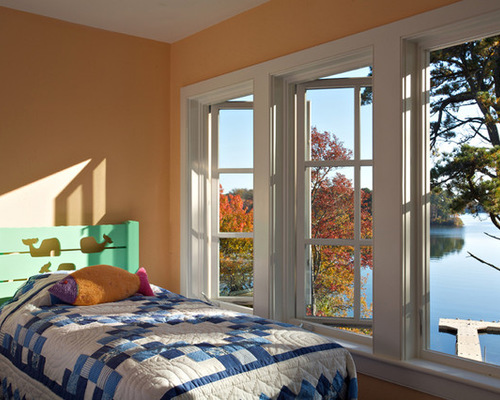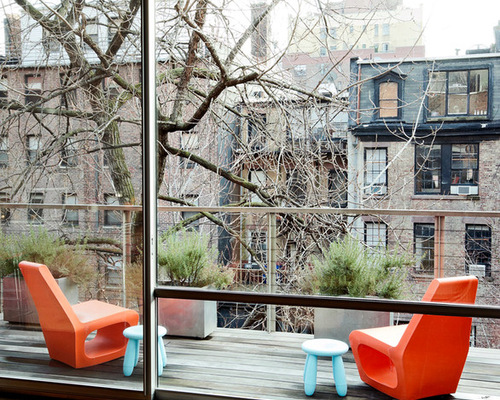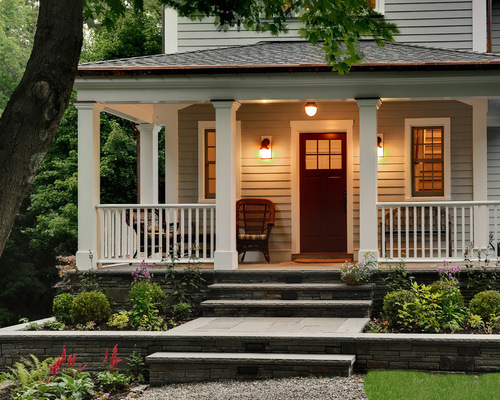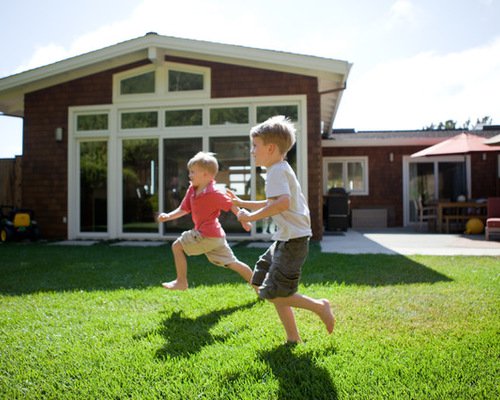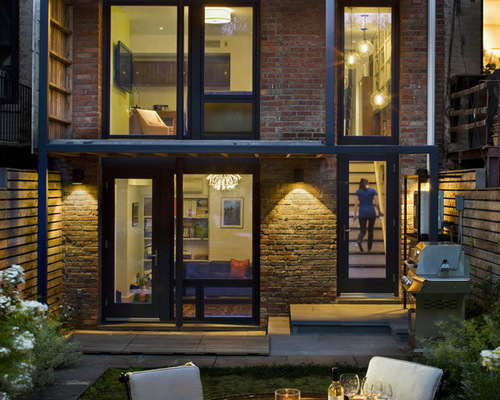Buying a home is one of the most significant financial decisions you’ll ever make, but the process...
Important Factors in Deciding Where to Live
Where we live affects so much in our lives: the work we find, the friends we have, the activities we enjoy and even our health. If you are considering a big move — whether you are moving for work, to be near family or simply because you're craving a change of scenery — following the steps below can provide you with a clear way to evaluate your new potential hometown. We will begin by focusing on the big picture (choosing a region), then we'll zero in on a neighborhood and, finally, a street and a house. Let's get started.
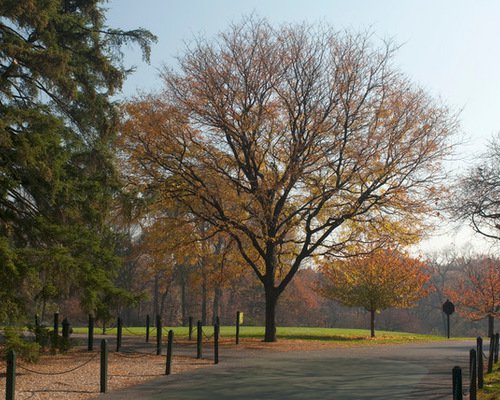 The New York Botanical Garden, original photo on Houzz
The New York Botanical Garden, original photo on Houzz
Decide on a Region
Weather and landscape: Do you love seeing the seasons change, or would you rather live somewhere temperate? Do you enjoy getting out in nature to hike, swim or camp, or would you rather go shopping? What sort of view would you love to see when you go outside? Mountains, beach, a city skyline, plains?
Social and cultural amenities: Do you want to be near famous museums, a symphony orchestra or major sports teams? What about a lively music or arts scene, places of worship and learning institutions? Make a list, thinking about how near you would ideally like to be to each place — frequently visited places should go on your neighborhood list (we'll get into that in a moment), but for others, being within a day's drive might be fine.
Family, friends and other connections: Of course, the people you know are one of the most important pieces of this puzzle. Living near family and friends can be a big reason to choose a place to live. Before moving away for a job, consider the impact it would have if you are no longer within driving distance of people you are close to. Send out feelers to see if there's a distant relation or a friend of a friend whom you could connect with in your new town right away.
Jobs and cost of living: This can be a delicate balancing act — in one place you may be able to get that great big house you've always dreamed of, but finding a job may be more difficult. In another place jobs may be more plentiful and highly paid, but if the cost of living is too high, you may find yourself scrambling to stay comfortably afloat. A cost-of-living calculator is an easy way to get a rough idea of how far your salary would go in another city — not all locations are represented in the one linked here, but it can be a good place to start.
Choose a Neighborhood
Walkability: The idea of walkability has been all over the place in recent years, and with good reason. Living in a place where you don't need to jump in the car for every little errand can improve your quality of life — not to mention it's healthier, because you will be walking more! You can find any neighborhood's walkability rating on Walkscore.
Neighborhood amenities: This is the fun part! Get out and explore your new potential community on foot. Seek and try shops, restaurants, markets and cafés. Look for walking and jogging paths, bike lanes, parks, libraries, schools and activities for little ones if you have kids. This can be tough to do if you are neighborhood hunting from afar, but try to explore neighborhoods firsthand before committing to an area.
Proximity: As you consider a neighborhood, take into account its proximity to your work, family and friends' homes, hobby locations and other favorite destinations. Of course the character of the neighborhood itself is important, but if you must commute for hours each day, you won't have time to enjoy all it has to offer. Try to strike a balance, and avoid long commutes if possible.
Try this: For one week pay attention to all of the places you go and write them down. Be specific — if you love visiting your local independent bookshop and natural grocery store, write that down, not just "bookstore" and "market." Use your list when comparing potential neighborhoods.
Schools: If you have children, finding a neighborhood that is in a good school district — or with access to good private schools if that is your preference — is essential. Check the Great Schools website for ratings and reviews of public and private schools across the U.S. But also try searching local parents' forums online, speaking with people you know in the area and visiting potential schools. There is only so much information a statistic can tell you; the rest you need to learn firsthand.
Safety and crime: Just as with schools, there is only so much crime statistics can tell you about a neighborhood. It's not a bad idea to check out the numbers on Crime Reports, a site that offers free searches of crime reports by location, but don't stop there. Talk to people in the neighborhood and check it out for yourself.
Air and water quality: Pollution levels can affect everything from asthma and allergies to cancer rates, and air and water quality can vary drastically from place to place. Visit the Environmental Protection Agency (EPA) website to search your environment by zip code. You can also use its search functions to find out if there are sources of green power available in the area.
Find the Right Street and House
Know what house style you prefer, but try to imagine living in it, not just how it looks from the street. Imagine how you will use each room and pay attention to the flow between indoor and outdoor spaces. Similarly, don't focus so much on the house itself that you forget to notice the block you would be moving to! Meet the neighbors if you can (bold folks could even knock on doors) and look for well-maintained homes, people out walking and roads and sidewalks in good condition.
Make a Decision
The very first question you should ask yourself before purchasing a home is whether you can easily afford it. If it's a stretch, the pain of keeping up with payments is only likely to build over time. Make life easier on yourself and choose a little less home than you can afford. Be willing to compromise (nowhere is perfect!) but do choose a place that has at least your top three qualities.
___
By Laura Gaskill, Houzz
